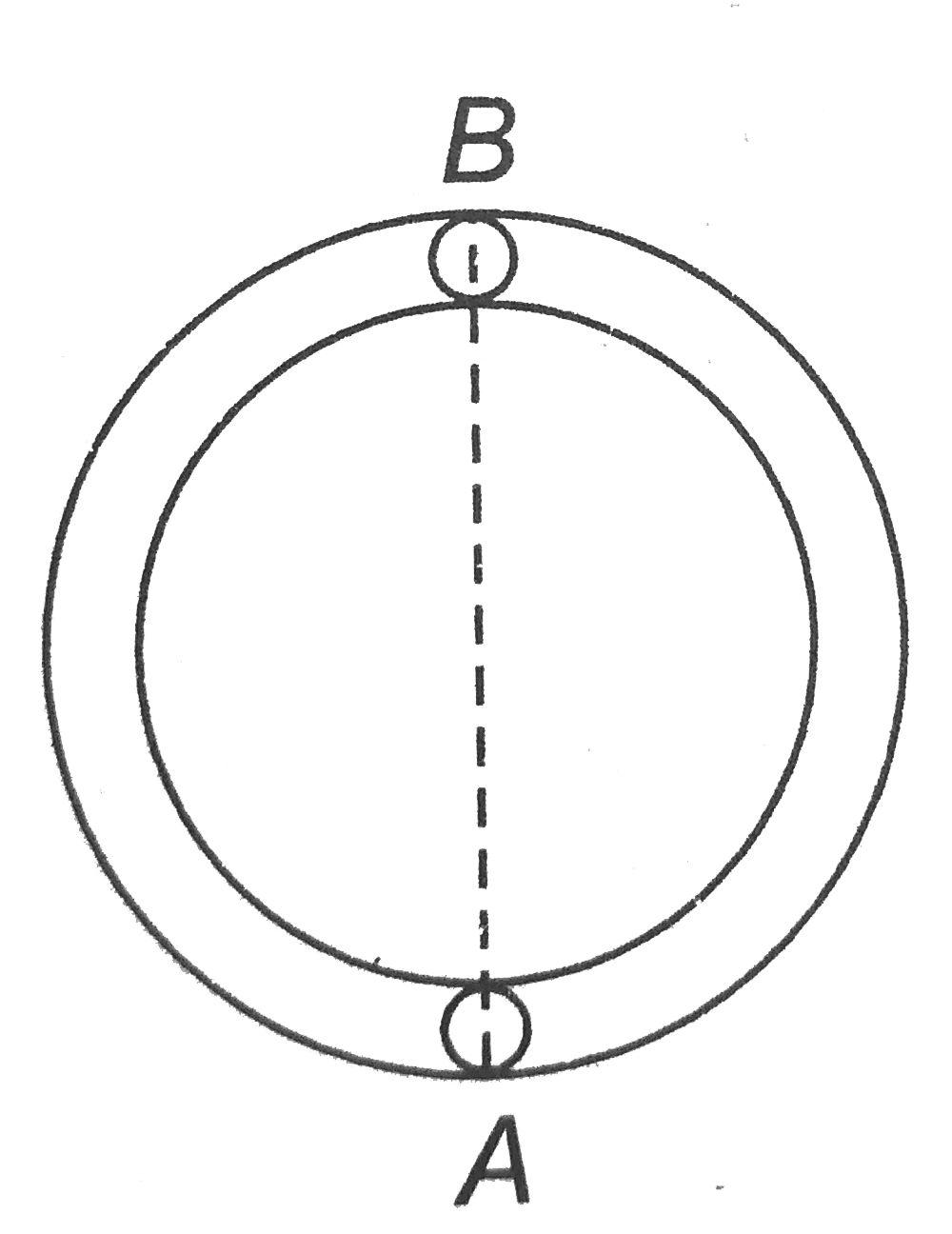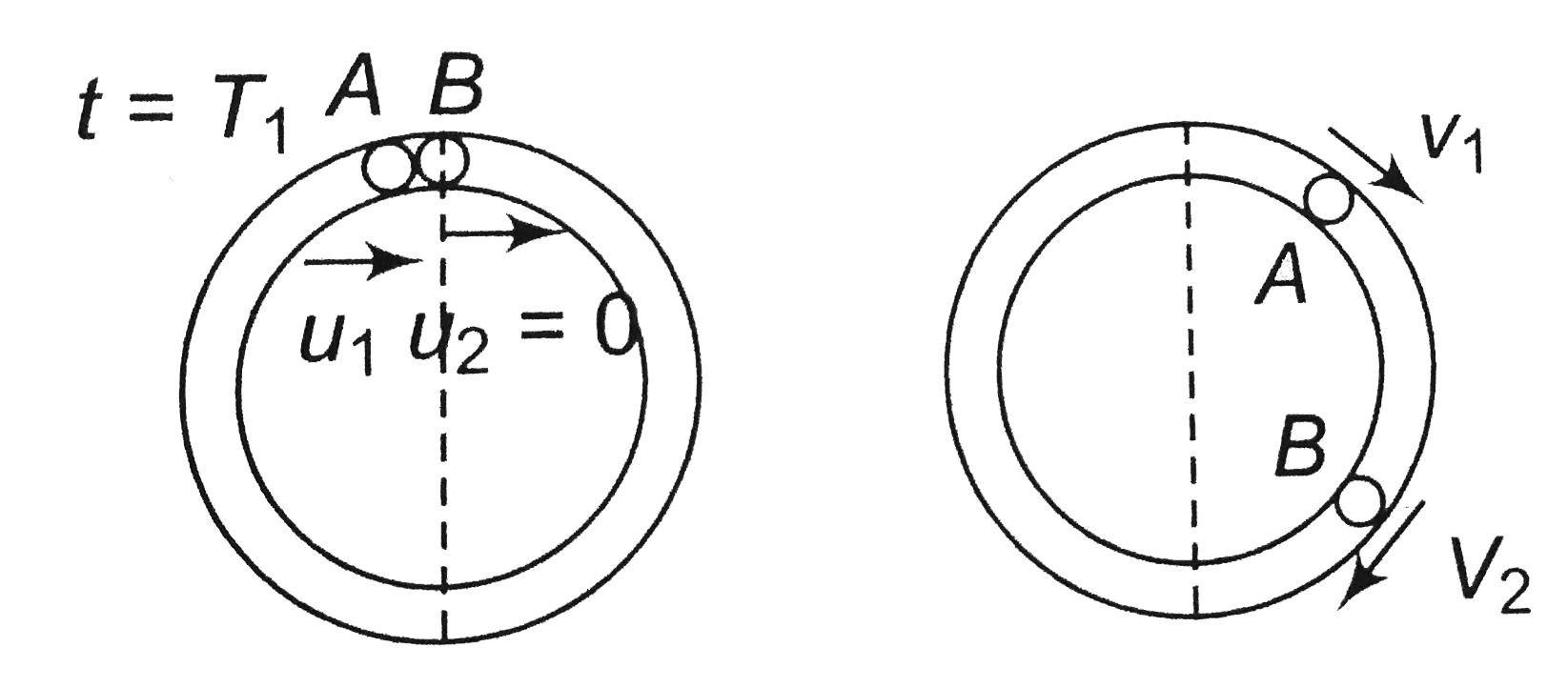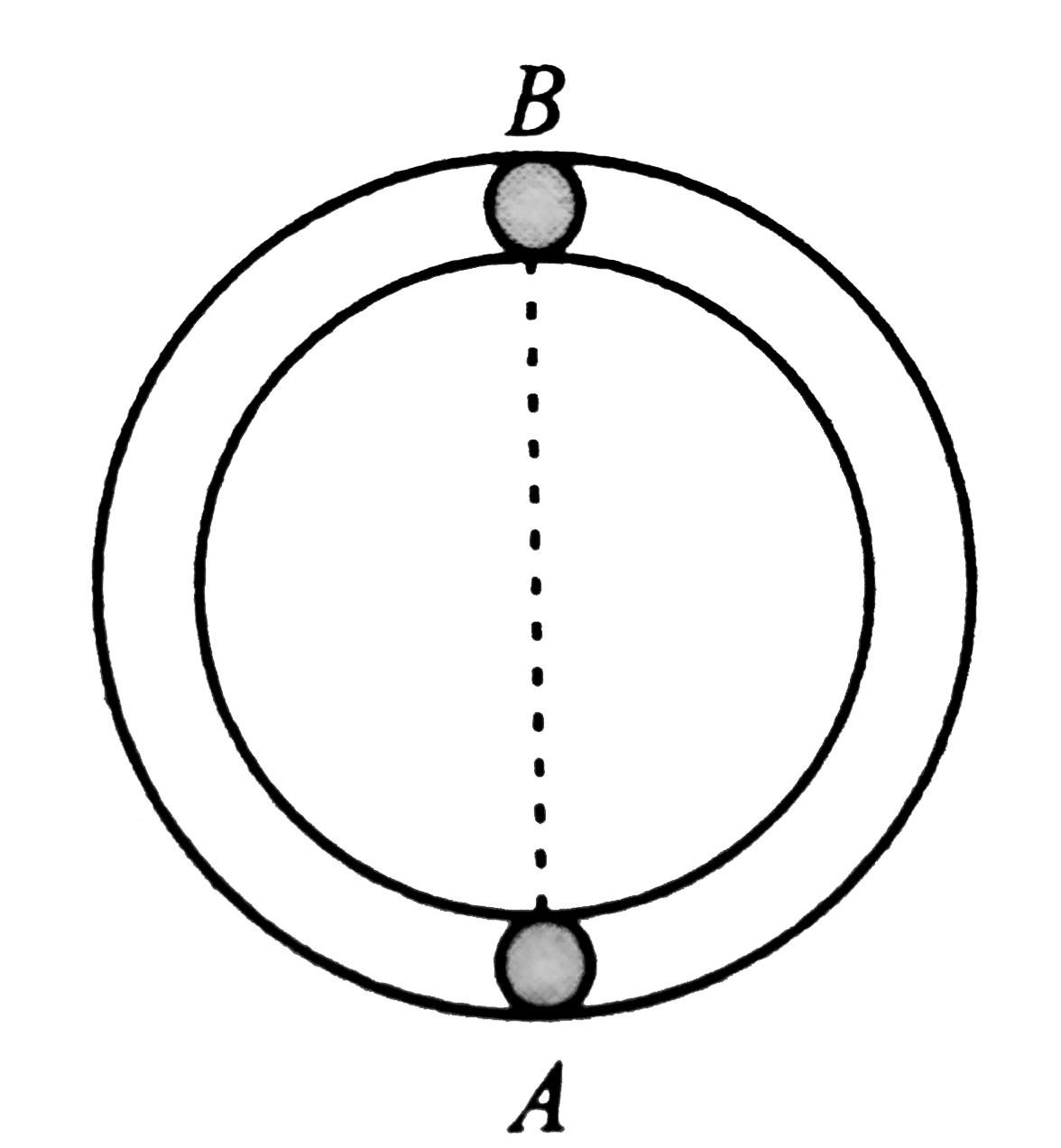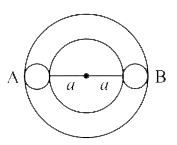Two equal sphere lie on a smooth horizontal circle groove at opposite ends of a diameter. At time is projected along the groove and tis first implings on at time t = T_(2). If is the coefficient of restitution, the ratio is

(1)

Time taken to collide again:
(2)
(2) + (1)
Topper's Solved these Questions
Similar Questions
A train accelerates from at the constant rate b for time t2 at a constant rate a and then it retards at the comes to rest. Find the ratiot1//t2.
View SolutionA projectille can have the same rangeR for two angles of projection. If t1 and t_(2)bethetimeofflight∈thetwocases,thenf∈dtherelationbetween t_(1), t_(2)andR .
View Solution
Knowledge Check
Two equal spheres A and B lie on a smooth horizontal circular groove at opposite ends of a diameter. At time t=0, A is projected along the groove and it first impinges on B at time t=T1 and again at time t=T2. If e is the coefficient of restitution, the ratio T2/T1 is
 A2eB(2+e)2C2(e+1)eD(2+e)e
A2eB(2+e)2C2(e+1)eD(2+e)eTwo identical spheres A, B are in a smooth horizontal circular smooth groove at opposite ends of a diameter. A is projected along the groove and it impinges on B in a time interval T. Let e be the coefficient of restitution, the
 AThe second impact will occur after time TBThe second impact will occur after time 2TeCThe second impact will occur after time 2TDNone of these
AThe second impact will occur after time TBThe second impact will occur after time 2TeCThe second impact will occur after time 2TDNone of theseTwo identical spheres P and I lie on a smooth horizontal circular groove at opposite ends of diameter. Pis projected along the groove and at the end of time t, impinges on Q. If e is coefficient of restitution, the second impact will occur after a shortest time of
A2πteBπteCteD2te
Two sphere A and B of equal masses lie on the smooth horizontal circular groove at opposite ends of diameter and at the end of time 't','A' impings on 'B' . If 'e' is the coefficient of restitution, the second impinge will occur after a time
View SolutionTwo sphere A and B of equal masses lie on the smooth horizontal circular groove at opposite ends of diameter and at the end of time 't','A' impings on 'B' . If 'e' is the coefficient of restitution, the second impinge will occur after a time
View SolutionActivity of a radioactive substance is R1 at time t1 and R2 at time t2(t2>t1) then the ratio R2R1 is :
View SolutionThe radioactivity of a sample is R1 at a time T1 and R2 at time T2. If the half-life of the specimen is T, the number of atoms that have disintegrated in the time (T2−T1) is proporational to
View SolutionThe radioactivity of sample is R1 at a time T1 and R2 at a time T2 . If the half -life of thespeciman is T, the number of atoms that have disintegrated in the time (T2−T1) is equal to :
View Solution
